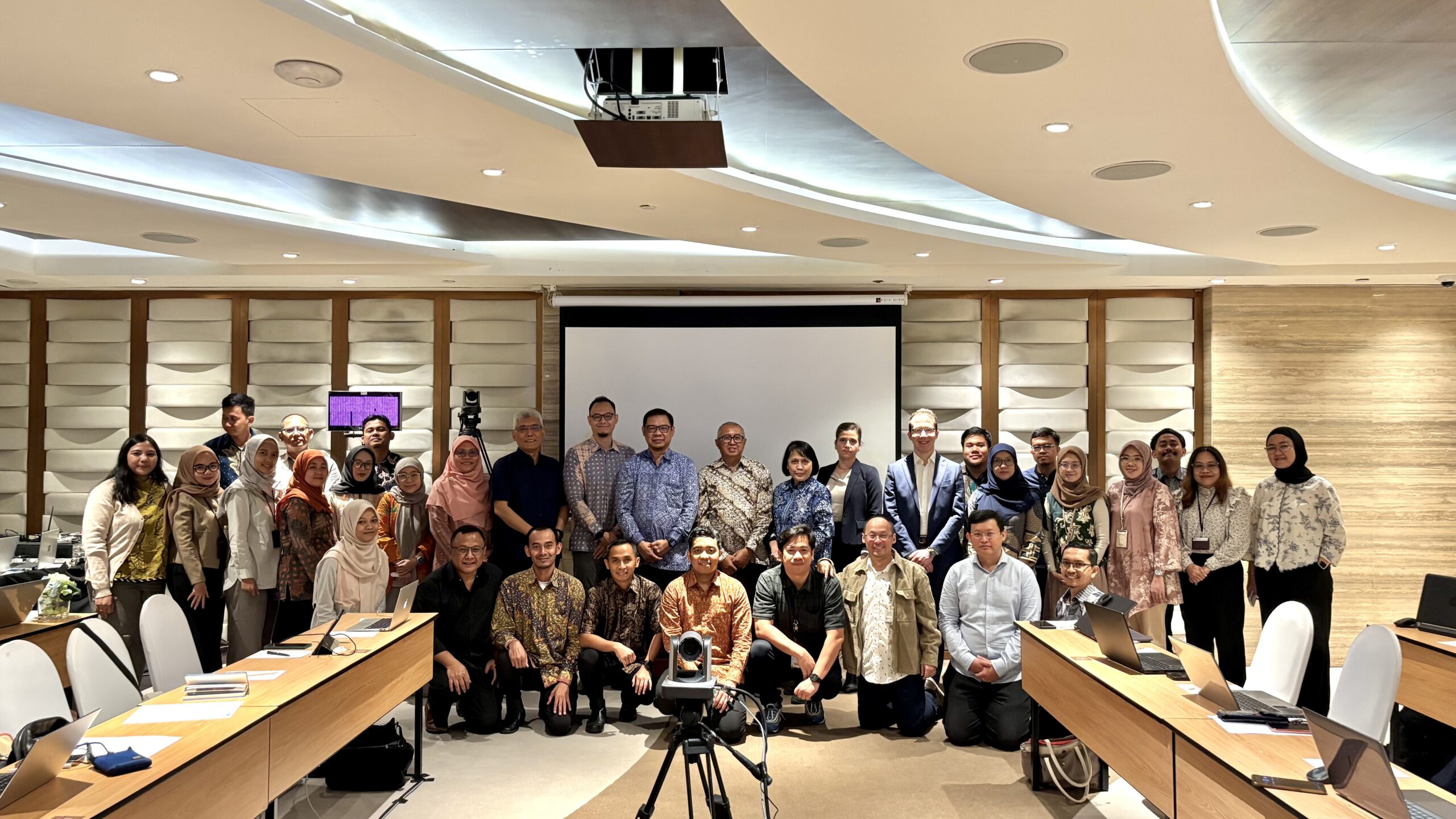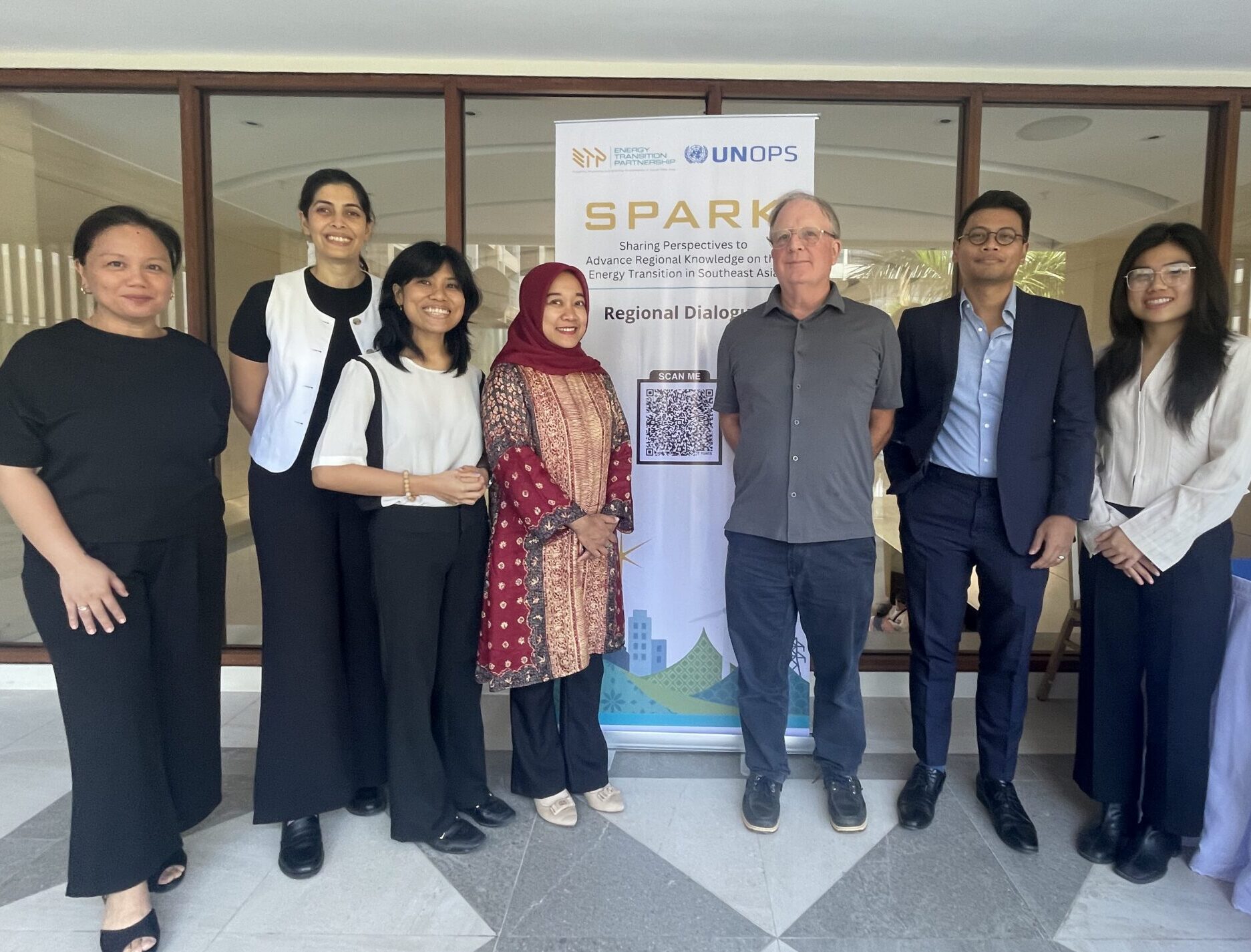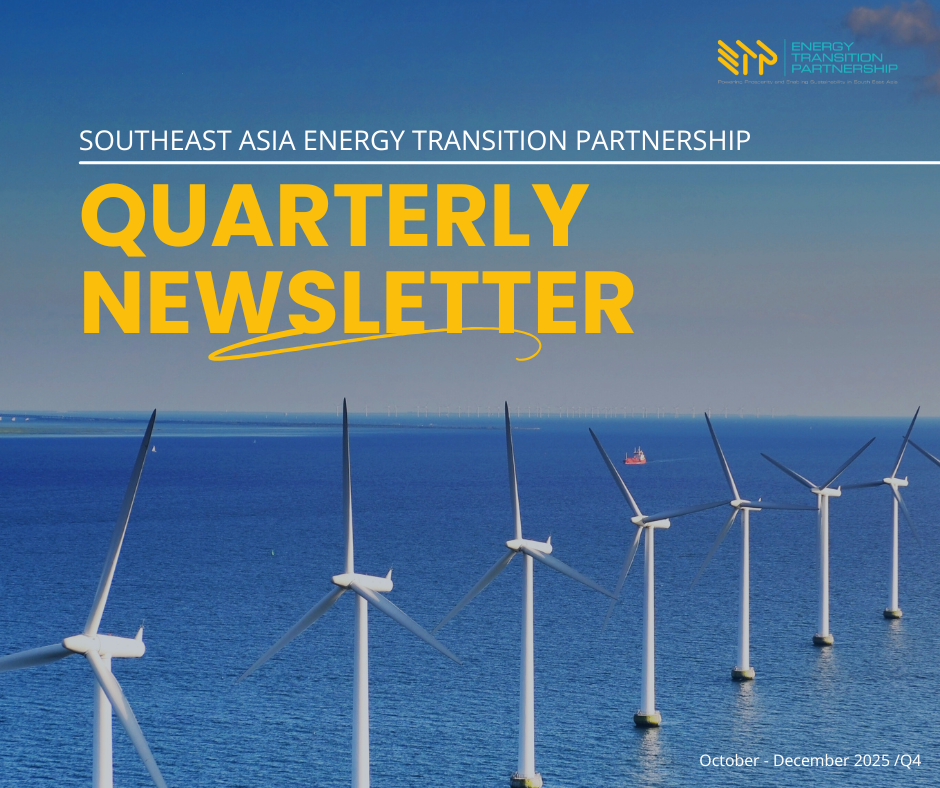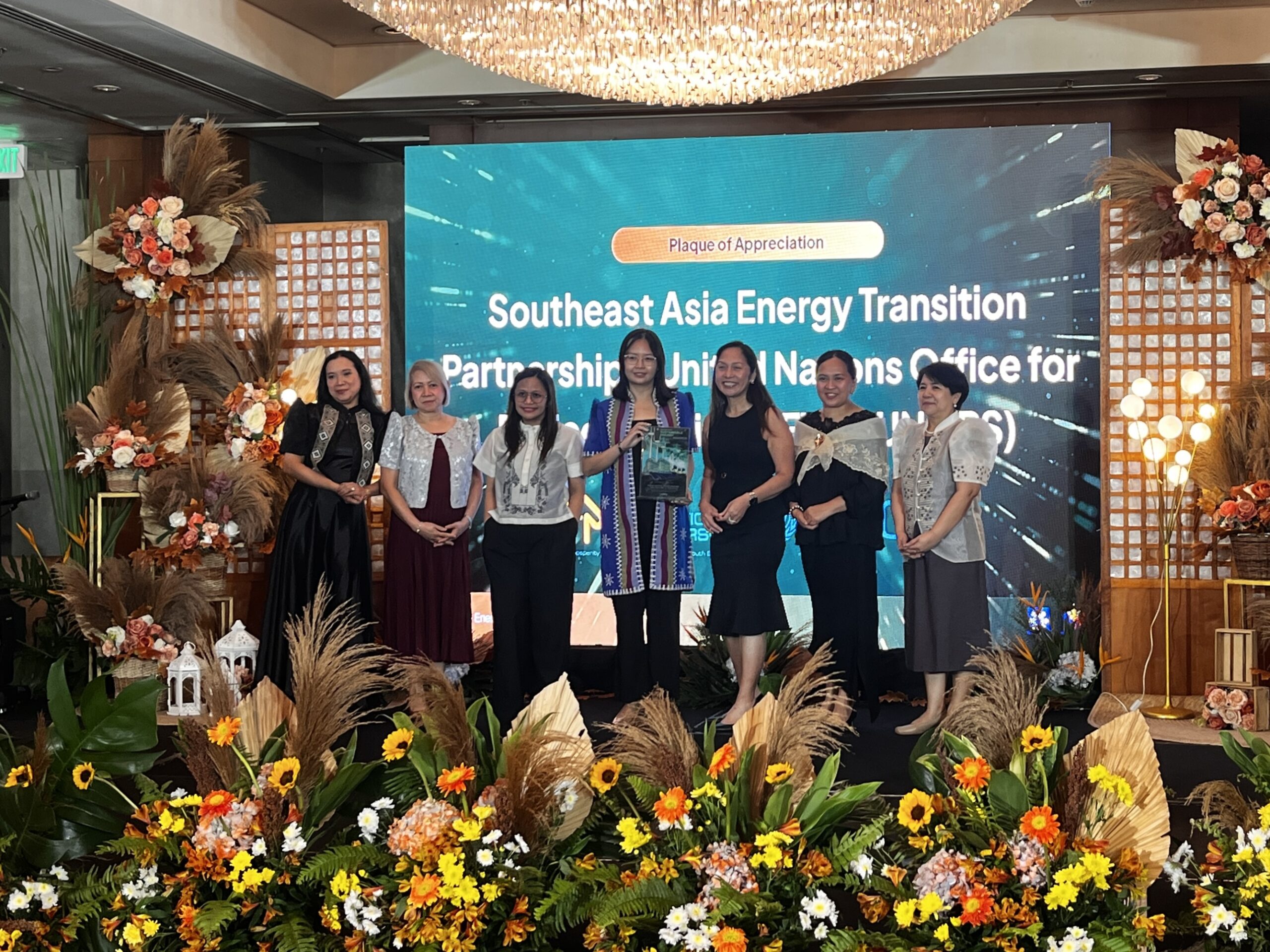Navigating International Carbon Tariffs for a Competitive and Low-carbon Future
Article by: Eugenia Bonifazi (Ricardo)

The global push towards industrial decarbonisation is reshaping trade dynamics, with mechanisms like the European Union’s Carbon Border Adjustment Mechanism (EU CBAM) influencing market competitiveness. Recognising the importance of this transition, Indonesia’s Ministry of Trade and Ministry of Industry, in collaboration with the Southeast Asian Energy Transition Partnership (ETP) under UNOPS, convened two high-level workshops on 25 February 2025 and 4 March 2025. These workshops presented findings from an in-depth study assessing the potential impacts of international carbon tariffs on Indonesia’s economy, both nationally and at the provincial level.
The workshops “Impact Analysis of International Carbon Tariffs at the Provincial Level” and “Forecast Analysis on the Impact of International Carbon Tariffs on Industrial Decarbonisation Efforts in Indonesia” brought together policymakers, industry leaders, and academic experts. The sessions provided data-driven insights and strategic guidance to help Indonesian stakeholders navigate the evolving global climate policy landscape, enhance industrial resilience, and accelerate the shift towards net-zero emissions.
A Strategic Response to Global Climate Politics
The workshops are part of a broader initiative, “Leveraging industrial decarbonisation options in Indonesia by anticipating international carbon tariff”. This project aims to assess the economic and trade implications of international carbon tariffs, particularly the EU CBAM, and develop actionable strategies to accelerate the decarbonisation of Indonesia’s industrial sector. By aligning with international standards and exploring incentive-based mechanisms, the initiative seeks to enhance the competitiveness of Indonesian exports while fostering a more sustainable industrial landscape.
In their opening addresses, Olvy Andrianita, Head of the Center for International Trade Policy, and Apit Pria Nugraha, Head of the Green Industry Centre, highlighted the government’s commitment to mitigating the risks posed by international carbon tariffs. They underscored the importance of proactive policy measures to ensure Indonesian businesses remain competitive in a rapidly evolving global economy.

Key impacts and policy implications
The study’s findings indicate that while CBAM’s macroeconomic impact on Indonesia is relatively limited, the policy has significant strategic implications. It serves as a catalyst for structural transformation, reinforcing market signals that favour cleaner production processes and diversified export portfolios. While this transition poses challenges for carbon-intensive industries, it also opens opportunities for forward-looking sectors.
- Sectoral Impacts: The iron and steel sector is expected to face the most significant challenges under EU CBAM, while other potential international carbon tariffs—such as those being considered by Australia—could heavily impact the fertiliser, cement, and aluminium industries.
- Regional Impacts: Provinces with high concentrations of carbon-intensive industries and limited economic diversification may experience marginal GDP losses. The fossil fuel industry, in particular, could face indirect economic setbacks due to reduced coal exports to jurisdictions implementing carbon tariffs.
- Opportunities for Transition: Despite these challenges, CBAM presents an opportunity for Indonesia to reallocate labour and capital towards low-carbon and non-CBAM sectors, such as consumer goods, electronics, agriculture, and transport equipment. Ensuring an equitable transition will be key to mitigating socioeconomic disruptions and maximising the benefits of industrial adaptation.


Supporting Businesses in the Decarbonisation Journey
The second workshop session provided an overview of EU CBAM’s operational framework and its potential economic implications for Indonesia. It also explored viable pathways for Indonesian industries to adapt and maintain their competitive edge in global markets. Two main strategies were discussed:
- Reducing the carbon footprint of exports. Industries can proactively lower emissions through cleaner production processes, energy efficiency improvements, and fuel switching.
- Implementing a domestic carbon pricing mechanism. Aligning with international carbon pricing standards could provide an alternative compliance pathway while supporting Indonesia’s broader sustainability goals.
The workshop placed particular emphasis on the first strategy – greening industrial production. Experts outlined key decarbonisation technologies and their potential impact, highlighting four potential priority actions:
- Material efficiency improvements
- Enhancing energy efficiency
- Transitioning to low-carbon fuels
- Deploying carbon capture and usage/storage (CCU/CCS) technologies.
A Call to Action
As international climate policies continue to evolve, Indonesia has a critical opportunity to leverage industrial decarbonisation as a driver of economic resilience and global competitiveness. Strategic investments in cleaner production, policy alignment, and capacity building will not only help mitigate risks associated with carbon tariffs but also position Indonesia as a leader in sustainable industrial development.
The primary findings from these workshops underscore the importance of early action. By fostering collaboration between policymakers, industry stakeholders, and research institutions, Indonesia can build a robust, future-ready industrial sector that thrives in a low-carbon global economy. The project will continue supporting Indonesia in this path with future activities and deliverables.




